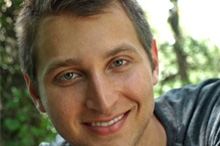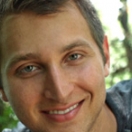

Robert Davis is being honored as a Champion of Change for his efforts in making government more transparent and accountable through technology.
I live in Florida, and although I love the internet and technology, I'll be first to say my home state is not known for being a leader in the “tech scene.” Once in a while something really cool will happen here though, as it did in 1981. An IBM team in Boca Raton started work on project “Acorn,” or what would become the first personal computer, popularizing the term “PC.” Surprisingly, Florida actually has a notable technical history from the Flagler Railroad to NASA’s Cape Canaveral Space Center. While growing up here I thought much different about my state; the place was hot, slow moving and isolated. I always tried to learn as much as I could about other places, longing to be where "it" was happening.
I’ve been fortunate enough to travel throughout my youth and in recent years. As a junior in college, again looking outside my state, I applied for an internship in San Francisco. It was a new nonprofit I’d never heard of before in the tech scene and government space, something I was very interested in better understanding. Somehow I got a phone interview, and I was lucky enough to spend a summer interning at Code for America. During this time I was exposed to a seemingly endless array of smart people and ideas. It challenged my perspective like never before and I wondered why Florida couldn’t have its own version of this inventive environment.
I was surrounded by these innovators and creators who knew how to “make” like I could only imagine. Not only did these teams invent things, they had a genuine need to exist and they did it in the most intuitive and understandable way imaginable. I also was exposed to new ideas for organizing locally. CfA had initiated “Brigades,” or self-organized community teams of citizens around the United States, who meet regularly to help their cities grow more open (usually leveraging technology in some way). This reaffirmed my hypothesis that Florida, and every other state for that matter, had substantial room for improvement civically.
To be honest, I've felt stressed and helpless about the problems we face collectively as communities for some time. Now however, from what I’ve experienced firsthand, a new era of the “citizen” is emerging. Community groups and social clubs, much like CfA brigades, have taken root and thousands of people are learning how to access, visualize, and share information about the places they live. Even my home state is making a comeback in the tech scene. Led by a surge in coworking, startup companies and access to the internet, events and conferences are springing up like never before.
A precursor to this new engaged “citizen” is a supportive environment for learning new things, and I’m ecstatic to see Florida going through this transformation. Places like The LAB Miami and groups like The Knight Foundation have created ample opportunities for feedback and discussion, a much needed part of puzzle. More people across the country are beginning to understand that participating in the process is better than just casting a vote or watching the news broadcast. Connecting online in addition to offline, can allow us to become more engaged and informed when it is convenient. This reinforces activities like voting or attending council meetings. No longer is the give-and-take of taxes for government services satisfactory. The citizen to government relationship is usually one riddled with long lines and confusion. Instead of being mad about an unjust law or confusing budget report, we can now work together to identify and begin to correct it. Check out what’s going on with projects like OpenOakland in Oakland, CA, OpenCityApps in Chicago, Illinois, and NYCBigApps in New York. These are all examples of collaboration for good.
The new “citizen” is a team of all of us. That means you too! Share what you know. Rewrite it so others can understand better. Gather likeminded people and ask questions. Learn something new about the place you live. This won’t be an easy journey, and tough questions will be brought up that some people might not like the answer to, but we can agree that we should have access to discuss this. Only when we can see what is unclear can we create the world in which we want to live. A better world can only be achieved by working together, so will you join in?
Robert Davis is a Code for America intern alumni and an avid supporter of creating civic tools with open data for the public good


